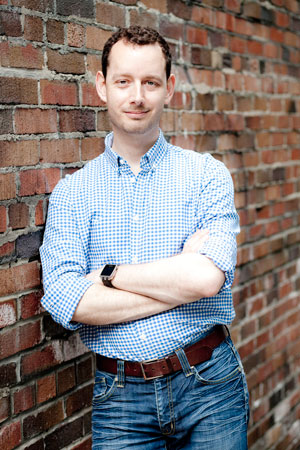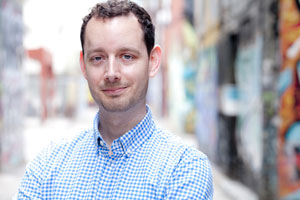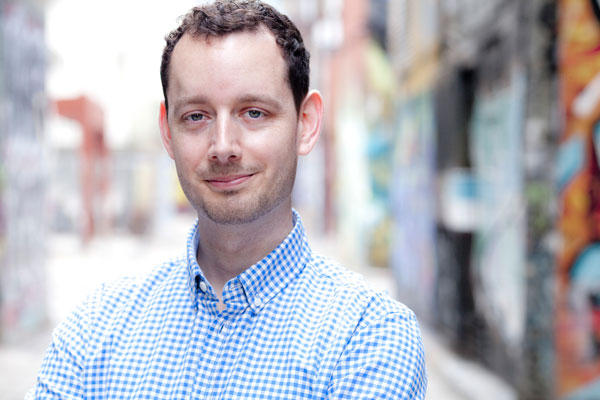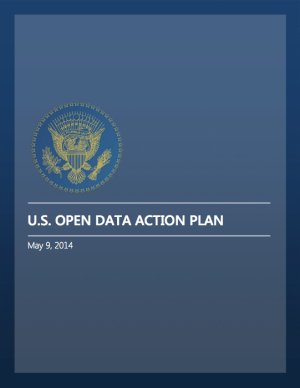Why I joined Creative Commons
mercredi 14 mai 2014 à 22:47
Ryan Merkley / Rannie Turingan / CC0
I’m honored to be chosen as CEO of Creative Commons. CC is a giant of the open web, and it’s an organization that I have always believed in and truly admire. I appreciate the confidence shown by the board, and support I have already received from staff and community members has been fantastic.
My path to CC has been unorthodox, but feels logical in retrospect. My commitment to public service and the public good; my deep belief in the power of technology; and my work to support the open Web as a place for everyone to create, share, and connect. Those are common threads that run through my work at the City of Toronto, at Mozilla, and now with Creative Commons.
Why am I joining CC? Because its success is so vital, and I want to ensure we succeed. Creativity, knowledge, and innovation need a public commons — a collection of works that are free to use, re-use, and build upon — the shared resources of our society. The restrictions we place on copyright, like fair use and the public domain, are an acknowledgement that all creativity and knowledge owe something to what came before.
Without a robust and constantly growing collection of works available for use and reuse, we lose the kind of innovation and creative inspiration that gave us Disney classics, hip-hop, and the interoperable Web. The consequences of failing to grow and protect the public commons present themselves as lost opportunities: discoveries not made, innovations left undeveloped, and creativity unrealized. It’s complex and hard to quantify, but also dangerous to ignore.
A public commons is a driving force to advance human knowledge, and is essential infrastructure for the global economy.
In today’s legal environment, the commons is increasingly under threat. New works are restricted by copyright from the moment they are created until long after their creators are dead, and stricter copyright rules are almost always demanded by large rights-holders who benefited from the commons in the first place. It’s like running across a rope bridge only to cut it loose once you get to the other side. And today’s battles over copyright often ignore the fact that the Web has dramatically shifted the motivations for creators: it’s no longer only about money. Many do it just for the love of their craft, or just to be seen in the world, and still more are finding ways to share their work and get paid at the same time.
There needs to be a balance that allows business models to thrive, and allows shared work to proliferate.
In the modern copyright environment, each one of us has to make a conscious decision to share our work. It can be complicated, confusing, and expensive. But we need creators to be inspired to do it anyway. We need governments, nonprofits, and institutions to give the public permission to use their works. We need an organization that makes the case, creates solutions so that sharing is easy even when the legal frameworks make it difficult, and that champions the benefits — both to individual creators, and to society.
That’s where Creative Commons has to lead.
A lot has changed since the first Creative Commons licenses were released in 2002. While the organization has been by many measures incredibly successful — enabling hundreds of millions of works to become part of a public commons — it has also struggled to adapt to new technology and the massive expansion of content created online.
Half a billion licensed works is an impressive achievement, but today’s Facebook users upload 350 million photos a day, and YouTube users upload over 100 hours of video a minute (yes, some of it CC-licensed). I want to drive more licensed works into the commons by breaking down the barriers — legal and technical — for individual creators. And we need tools to help those who would reuse their work to find it quickly and easily.
In his 2008 book, The Public Domain: Enclosing the Commons of the Mind, James Boyle (also a former CC board member) makes an impassioned plea to build a global movement that will fight for the public commons — one modeled after the environment movement, which took something complex and hard to quantify and drew people to its cause. I believe Creative Commons must lead this movement.
We need to rally people to our cause, and ask for their creativity, their time, and their financial support.
We begin with a global network of 70 affiliates around the world who already form a vibrant, opinionated, and brilliant community of legal experts and advocates. The seeds of our movement already have roots.
We have a strong suite of free licenses that enable sharing in an increasingly restrictive legal framework.
And we have a powerful, recognizable brand that is respected the world over.
Not a bad place to start. I’m excited to step into this role, to defend and champion the public commons, and to join this global community and movement.



